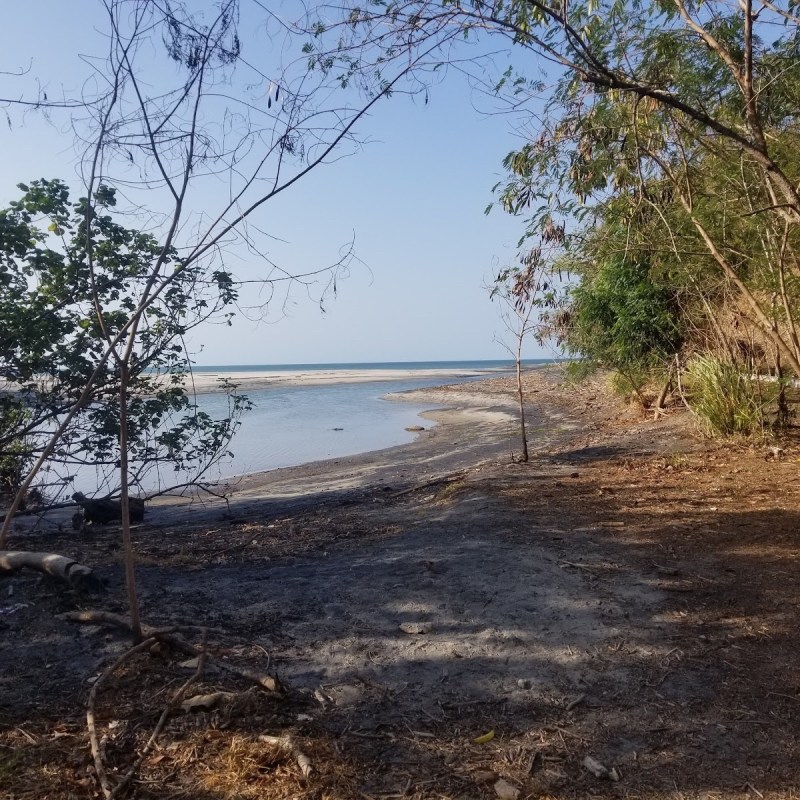
In my life, I have been and done many things. Some might say “Jack of All Trades, Master of None,” but I prefer to look at it as a fulfilling potpourri of adventures, learning experiences, and ah-ha moments.
Videos by TravelAwaits
As life will tend to give you lemons from time to time, the 2008 crash hit hard as did several other personal crises. I dreamt of a farm and a log cabin in the woods. (“We plan. God laughs,” right?) After struggling through all life threw at me between 2006 and 2010, now a widow, not content with my job, and an empty nest, I was in limbo trying to figure out what was next.
In 2012, I decided to take a year’s leave of absence from my job to teach in Panama and figure things out. One year became two then, when the Florida schools called to welcome me back, I realized Panama had stolen my heart. I retired and never moved back.
My choice to retire in a foreign country was more of fate and that ignorance-is-bliss thing, but nonetheless, I have been here 10 years, as in awe as the day I arrived. I have learned so much from my experiences and am happy to have the opportunity to share what I’ve learned about retiring abroad, step by step.

1. Plan And Research
When you envision your retirement dream, don’t try to make it what you left; otherwise, why leave? Let it choose you and then immerse yourself in it. Your heart will know, but do your due diligence, too. Panama is definitely for me, but it might not be for everyone. The same goes for anywhere.
Many potential expats will watch the videos, read articles, and even take a relocation tour and are sure that this spot is where their dream life awaits. They pack up their must-haves, send them off in a cargo container, and buy that little casita or condo only to find out it is nothing like the photos or their whirlwind visit. Maybe shopping isn’t so close or no one in their pueblo speaks English, the hospital is far, they can’t maneuver the banking system, et cetera.
All of these things are manageable, but in some places, the “system” can be a misnomer and a frustrating tear-filled experience if your expectations were for everything to run exactly as it did back home. It doesn’t!
Pro Tip: Always use a reputable attorney for any transactions. Many processes require them, and for good reason. I know personally and can highly recommend Panamanian law expert Jenny Soto and Universal Services translators, but do ask around and get references.

2. Location Matters
Since my family lives in Florida, visits can be quite frequent. Distance from the airport can play a major role. Similarly, Panama is an ideal location for me as there are short, direct, inexpensive flights to Florida
City Living
The city has all the conveniences, everything within walking distance, and traffic where road rules are only suggestions. (They know you are a foreigner when you use a turn signal!) Cities have the nightlife, restaurants, cultural activities, tourist attractions, et cetera.
However, if you are looking for that retirement dollar to go farther, you might find some sticker shock. If you can learn to live and shop more like a local, your U.S. dollar will go much farther. In most of popular expat countries, they grow it, pick it, eat it or sell it seasonally, so the taste is incredible!
Beach Life
Although there are many so-called beach communities, in Panama, no one can actually own the beach. That said, many remain pristine and are easily accessible. There are 35+ within 2.5 hours of the city!
Rural Or Country Living
The countryside (anything outside the city is referred to as “the interior” in Panamá) will get you the most bang for your buck. There are wonderful little Panamanian pueblos everywhere. Spanish is most likely dominant and neighborhood cash-only stores the norm. There are the local festivals, family living a house away from each other if not together, music all day, and cantinas with cheap drinks and a friendly greeting.
Here, the mountains are a popular option for expats. The cooler temperatures mean no heat or air necessary but consider that drive up and down the mountain.
Climate Considerations
Climate is always a consideration. Panama basically has two seasons: hot and wet or hot and dry. The mountains do offer a reprieve from the heat and humidity but can be a bit of a drive to things that you might like, need, and want.
Here, summer runs from December to April and is dry. The sun is strong but there are beautiful cool breezes. The rainy season is long but gives us breathtaking plant and animal life! Panama has no hurricanes or active volcanoes — something to consider when looking at your intended retirement country.
Pro Tip: Some of the reasons Panama’s been perfect for me are that the climate is similar to Florida, so no big adjustment or new multi-season wardrobe needed.

3. Get Real About Your Cost Of Living
I didn’t originally intend to retire early, especially in a foreign country. However, after some time living and working amongst possibly the happiest people anywhere, I just couldn’t go back. I was living better on a fraction of what I was making in Florida. I was happier, healthier from walking everywhere and going Latin dancing, and had learned a second language — I had found my new me!
Before I submitted that retirement paperwork at age 57, I spoke to some financial planners who suggested I calculate the difference per month of retiring early versus waiting for my planned retirement date. I found the difference was not worth waiting for, especially considering the much lower cost of living in Panama.
You will hear that the cost of living has increased in many places as they have become more popular with expats. That can be both true and false.
Naturally, things will be more expensive in the cities but there are still bargains to be found if you know where to look. The real estate sites that cater to expats will feature properties that are much more expensive than those listed where the locals shop for homes.
If you must have all those name brands, they are available…for a price. However, if you immerse yourself in your new community and live more like a local, it is more than affordable.
During any drive up or down the Interamericana here in Panama, you will see vendors selling local and seasonal fresh produce. A 20-pound bag of juicing oranges is generally $5.
Health Insurance
Health insurance is much cheaper in many countries than it is in the U.S., and the care can still be excellent. I pay $31.50 per month for something called a Mi Clinica Plan.
Here in Panama, there are several levels of healthcare available. For example:
- Public: Very inexpensive, but you will wait for care and reviews on the quality of care you’ll receive are mixed.
- Social Security: If you have worked and paid into it, it can be cheap or free.
- Private: a bit more expensive but includes care offered by John Hopkins among other places.
Jackie Lange offers some great info about staying insured in Panama, specifically, here:

4. Expect Cultural Differences
Living abroad has given me a new perspective on many things.
My mantra: “No one gets to decide what ‘right’ is. ‘Right’ is only a perspective based on one’s own culture, norms, customs, et cetera.”
One cultural difference here is the importance of time. In Latin America, it does not exist. This can be a difficult adjustment since our time-is-money concept is completely lost here. It is more likely that someone will be late and early doesn’t exist.
Another rule of manners is the greeting. Every conversation starts with Buenos días Buenas tardes, or Buenas noches. You will hear that when someone enters a bank and everyone in the bank will respond. Random strangers on the street will rarely pass by without offering an enthusiastic greeting.
5. Learn The Language (At Least A Little)
In many of the popular relocation countries, there are expat communities where English is widely spoken; however, do you want to be that confined? No entiendo — “I don’t understand” — might not be a phrase you want to rely on regularly.
You might not always find English when you venture out, so at least learn the basics, and keep Google Translate handy. Your simple efforts will be warmly welcomed.
6. Patience Is A Virtue
My suggestion is to make a short top-picks list, do your research, then try a few out in an Airbnb or short-term rental for a few weeks, mingle, and ask a lot of questions. Then try your next favorite place.
Go at it with an open mind and heart, then sit back with some of that great Panamanian rum or a cerveza — or whatever drink is popular in your intended retirement home! — and enjoy your retirement and your new life. Disfruta!
For more on retiring abroad, consider
